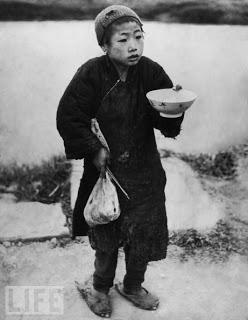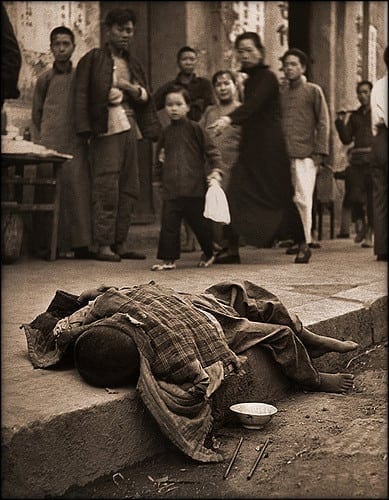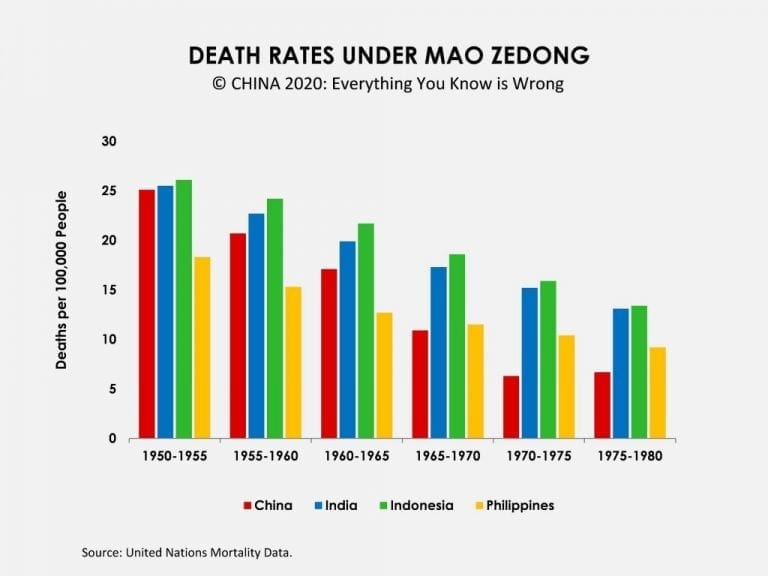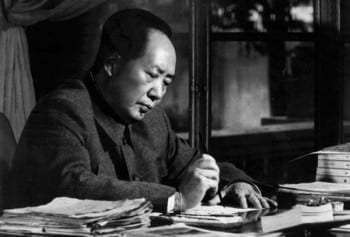DID YOU MISS PART 1 OF THIS PRESENTATION? CLICK HERE.
 SPECIAL EDITOR for Asian Affairs Godfree Roberts (Ed.D. Education & Geopolitics, University of Massachusetts, Amherst (1973)), currently resides in Chiang Mai, Thailand. His expertise covers many areas, from history, politics and economics of Asian countries, chiefly China, to questions relating to technology and even retirement in Thailand, a topic of special interests for many would-be Western expats interested in relocating to places where a modest income can still assure a decent standard of living and medical care.
SPECIAL EDITOR for Asian Affairs Godfree Roberts (Ed.D. Education & Geopolitics, University of Massachusetts, Amherst (1973)), currently resides in Chiang Mai, Thailand. His expertise covers many areas, from history, politics and economics of Asian countries, chiefly China, to questions relating to technology and even retirement in Thailand, a topic of special interests for many would-be Western expats interested in relocating to places where a modest income can still assure a decent standard of living and medical care. GODFREE ROBERTS—There were influential people, inside China and out, who wished to discredit Mao and who took to exaggerating–and even fabricating–statistics to make a gloomy picture darker. In assembling their arguments, Mao’s critics evidence a population deficit (fewer people around than expected) and impute births and deaths which may not have occurred.
ADDENDUM: Dr Roberts answers a rather typically ill-informed question.
Asked in Quora: “Why did Mao enjoy killing?
This question should be phrased with neutral and sincere languageThis question’s wording makes it seem like a joke, or intended rhetorically to make a statement, rather than looking for helpful answers. It should be rewritten to be a neutral, non-leading question. See Quora’s policies on questions.
[dropcap]T[/dropcap]he question assumes that Mao enjoyed killing, when the historical record reveals precisely the opposite.
The war had created millions of criminals and Mao’s instructions are characteristic, “The principle is that those who owe blood debts or are guilty of extremely serious crimes and have to be executed to assuage the people’s anger and those who have caused extremely serious harm to the national interest must be unhesitatingly sentenced to death and executed without delay. As for those whose crimes deserve capital punishment but who owe no blood debts and are not bitterly hated by the people or who have done serious but not extremely serious harm to the national interest, the policy is to hand down the death sentence, grant a two-year reprieve and subject them to forced labour to see how they behave”.
When furious colleagues demanded executions, he asked repeatedly, “What harm is there in not executing people? Those amenable to labour reform should go and do labour reform so that rubbish can be transformed into something useful. Besides, people’s heads are not like leeks. When you cut them off, they won’t grow again. If you cut off a head wrongly there is no way of rectifying the mistake even if you want to”.
Japan’s military had committed war crimes of immense scale and horrific savagery during their twelve-year occupation and popular bitterness was boundless, but Mao forbade retribution: “Our policy towards prisoners captured from the Japanese, puppet, or anti-Communist troops, is to set them all free except for those who have incurred the bitter hatred of the masses and must receive capital punishment and whose death sentence has been approved by the higher authorities. We should not insult them, take away their personal effects or try to exact taxation from them but should, without exception, treat them sincerely and kindly. However reactionary they may be, this should be our policy”. He permitted the execution of forty-six war criminals then pardoned and repatriated a million Japanese soldiers. He even dissuaded Japan’s puppet Chinese emperor, Pu Yi, from suicide and helped edit his memoirs because, he told the remorseful man, he would find it therapeutic.
Above all, he ended the worst centuries of suffering in China’s long history, prompting historian Maurice Meisner to compare him to its greatest emperor, “However harsh the rule of the new Communist state, the establishment of order and security brought enormous and immediate benefits to the great majority of the Chinese people…In this sense, 1949 stands as a milestone in Chinese history comparable only to 221 BC, when the various feudal states of antiquity were united into an empire under the Qin dynasty”.
But the best measure of Mao’s dislike of killing is the hundreds of millions of lives he made possible:
Quora, much like a Wiki, reflects a wide spectrum of information, both at the questioning and answering points. That said, as an instrument chiefly used by the public at large it also reflects the erroneous notions, prejudices and knowledge gaps permeating the popular mind. Thus the questions often give us a sort of snapshot about the disinformation effects of mainstream capitalist propaganda on the general population. The image below, showing great ignorance, innocence and serious deformations relating to important subjects, is eloquent.—PG
GODFREE ROBERTS—There were influential people, inside China and out, who wished to discredit Mao and who took to exaggerating–and even fabricating–statistics to make a gloomy picture darker. In assembling their arguments, Mao’s critics evidence a population deficit (fewer people around than expected) and impute births and deaths which may not have occurred.
This work is licensed under a Creative Commons Attribution-NonCommercial 4.0 International License.
Parting shot—a word from the editors
The Best Definition of Donald Trump We Have Found
 In his zeal to prove to his antagonists in the War Party that he is as bloodthirsty as their champion, Hillary Clinton, and more manly than Barack Obama, Trump seems to have gone “play-crazy” -- acting like an unpredictable maniac in order to terrorize the Russians into forcing some kind of dramatic concessions from their Syrian allies, or risk Armageddon.However, the “play-crazy” gambit can only work when the leader is, in real life, a disciplined and intelligent actor, who knows precisely what actual boundaries must not be crossed. That ain’t Donald Trump -- a pitifully shallow and ill-disciplined man, emotionally handicapped by obscene privilege and cognitively crippled by white American chauvinism. By pushing Trump into a corner and demanding that he display his most bellicose self, or be ceaselessly mocked as a “puppet” and minion of Russia, a lesser power, the War Party and its media and clandestine services have created a perfect storm of mayhem that may consume us all.— Glen Ford, Editor in Chief, Black Agenda Report
In his zeal to prove to his antagonists in the War Party that he is as bloodthirsty as their champion, Hillary Clinton, and more manly than Barack Obama, Trump seems to have gone “play-crazy” -- acting like an unpredictable maniac in order to terrorize the Russians into forcing some kind of dramatic concessions from their Syrian allies, or risk Armageddon.However, the “play-crazy” gambit can only work when the leader is, in real life, a disciplined and intelligent actor, who knows precisely what actual boundaries must not be crossed. That ain’t Donald Trump -- a pitifully shallow and ill-disciplined man, emotionally handicapped by obscene privilege and cognitively crippled by white American chauvinism. By pushing Trump into a corner and demanding that he display his most bellicose self, or be ceaselessly mocked as a “puppet” and minion of Russia, a lesser power, the War Party and its media and clandestine services have created a perfect storm of mayhem that may consume us all.— Glen Ford, Editor in Chief, Black Agenda Report














